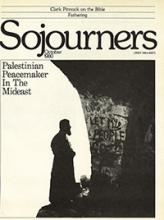More than 50 representatives from 11 Christian communities in the United States met this past June at the Community of Celebration in Woodland Park, Colorado, for a week of theological reflection. At this second annual Community of Communities Theological Conference, we sought to learn from one another how to make prayer more integral to our life and ministry.
Daily teachings on the disciplines of solitude and community by Henri Nouwen, professor of pastoral theology at Yale Divinity School, sparked many dinner-table and afternoon conversations. Our experience began to teach us that without prayer our communities can become idols and our relationships with one another unbearable. Without prayer, we become too dependent upon the results of our work, and our service flows out of inner compulsions, needs, and insecurities rather than out of our love for the Lord and obedience to God.
Though a "corporate spirituality" and vital group worship was highly developed in most of the communities present at the conference, many recognized that a corresponding "contemplative spirituality" is essential for long-term survival. Even at the conference with mornings set aside to talk about the importance of prayer and afternoons free for its practice, however, we still had to wrestle with a deep-seated resistance to solitude and a long-entrenched difficulty to enter deeply into prayer.
Our week convinced us that we need more than an intellectual or theological understanding of the importance of prayer if our communities and ministries are to survive.
Read the Full Article

